Spatial Practices
Research in this thematic area is concerned with the way in which social practices contribute to the production of urban environments. It refers to the city as lived space, and seeks to examine the activities of individual and collective users, and analyze urban experiences and routines of everyday life that can be both material (or physical) means of inhabiting and contesting spaces as well as imagined ones. By focusing on a multiplicity of actors and publics, and recognizing the dynamics of social division and interaction, this thematic area positions place-making as a political practice, and the social production of space as a generative and necessary condition of the city.
The themes that have been explored so far under this umbrella cover an array of spatial practices and their intersections, and can be framed as negotiations, claims or rights over space. They include urban security and militarization, street occupation, play and leisure, policing, home-making, mobility, labor, refuge and displacement, territorial organization, neighborhood formation, and the perception of boundaries to name but a few.
-
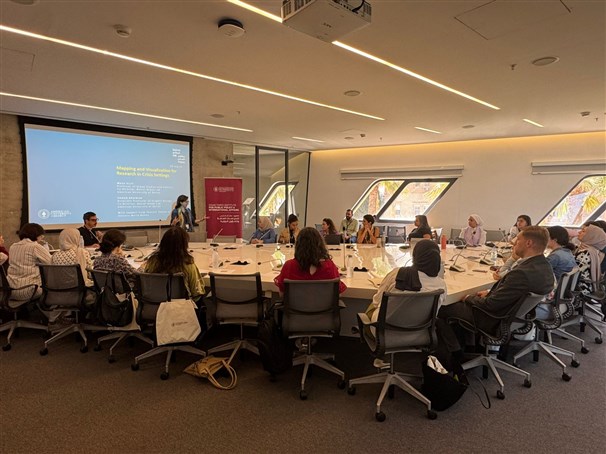
07.10.2025
Workshop
“Mapping and Visualization for Research in Crisis Settings” Workshop
- Critical Mapping
- Spatial Practices
-
Publication
Urban Heritage and the Politics of the Present: Perspectives from the Middle East
Mona Fawaz (ed.), - 2006
- Planning Actors and Scales
- Spatial Practices
-
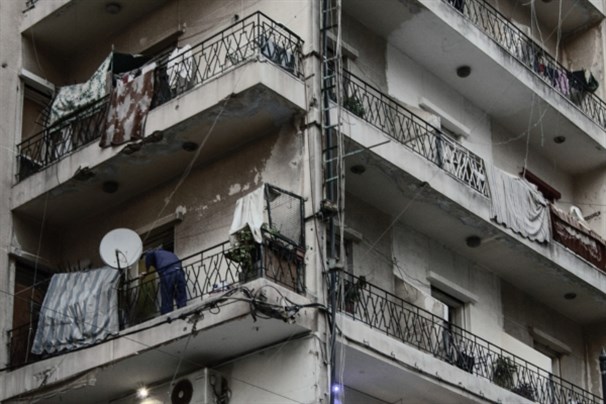
17.12.2024
Project
Echoes of War
- Social Value Of Land
- Critical Mapping
- Spatial Practices
-
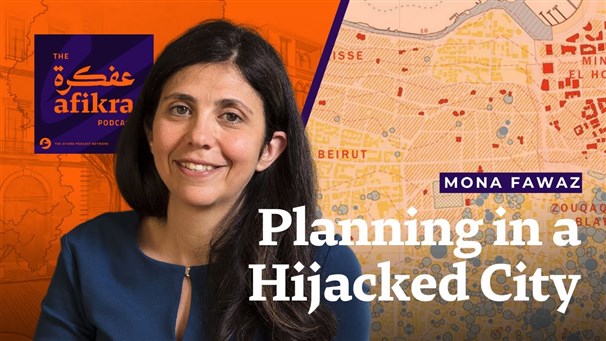
25.04.2024
Interview Q&A
Hijacked City: Urban Planning for a Better Beirut
- Planning Actors and Scales
- Spatial Practices
- Urban Citizenship
-
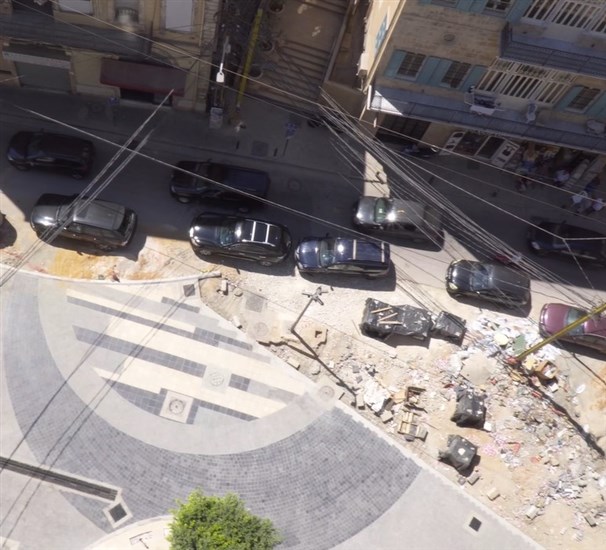
27.07.2023
Video
Why was the Mar Mikhael Piazza Project stopped?
- Spatial Practices
-
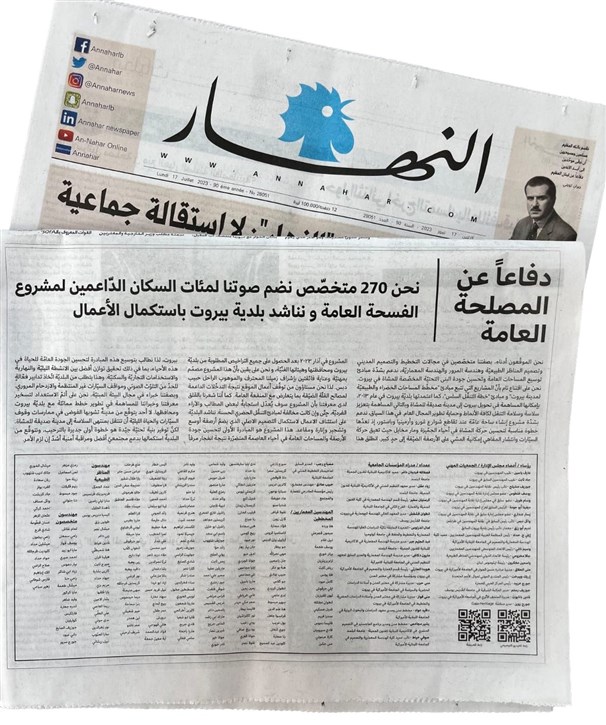
17.07.2023
Petition
Urban professionals endorse the public square project in Mar-Mikhael/Gemmayzeh, countering misinformation
- Spatial Practices
-
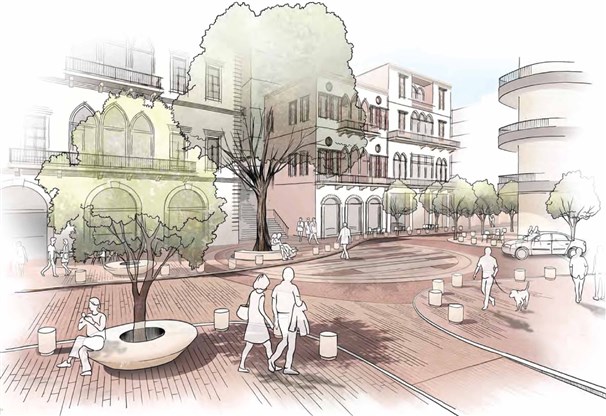
08.06.2023
Video
The Mar Mikhael Square Project
- Spatial Practices
-
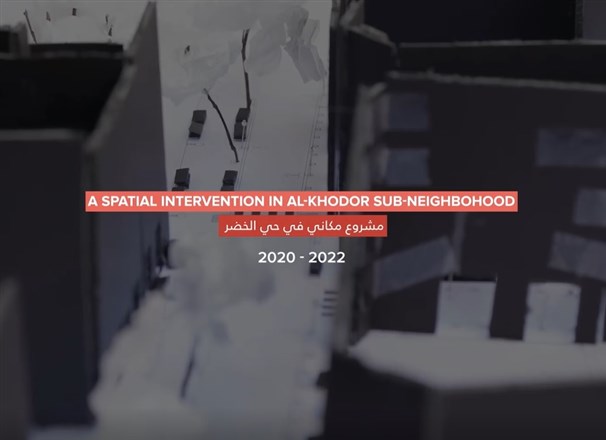
16.12.2022
Video
Sahat el Elfeh: A Spatial Intervention in Al-Khodor Sub-Neighborhood
- Spatial Practices
- Urban Recovery
-
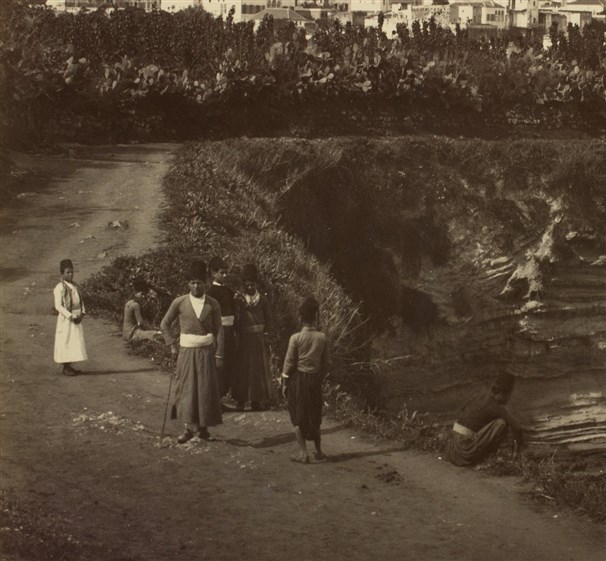
12.12.2022
Project
Oral Narratives by the Residents of Karantina
- Urban Recovery
- Spatial Practices
-
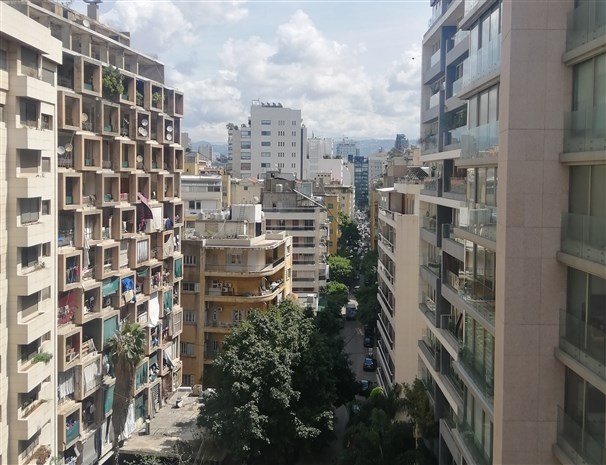
OCTOBER 2022
Project
The Prosperity Co-Laboratory for Lebanon (PROCOL Lebanon)
- Urban Recovery
- Spatial Practices
- Urban Informality
-
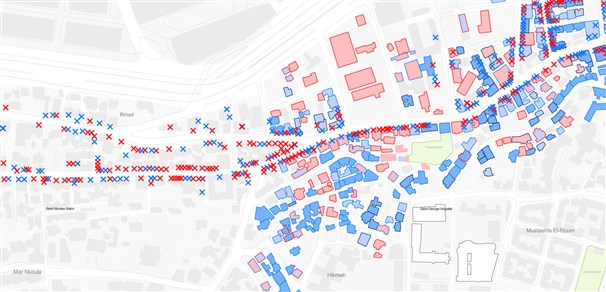
06.10.2021
Project
The Beirut Urban Observatory
- Urban Recovery
- Critical Mapping
- Planning Actors and Scales
- Spatial Practices
-
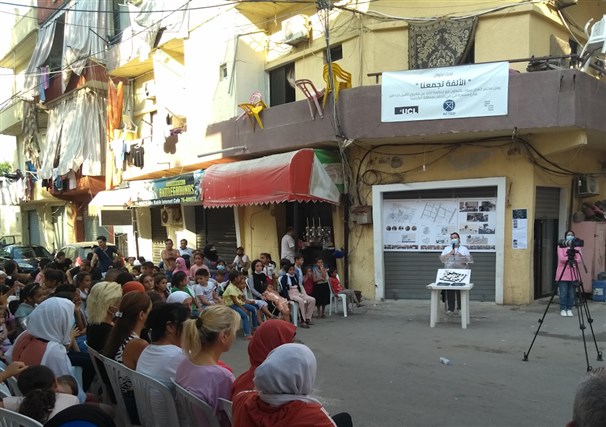
03.08.2021
Events
Launching of the Rehabilitation Project of Sahet Al Khodor in Karantina
- Urban Recovery
- Spatial Practices
-
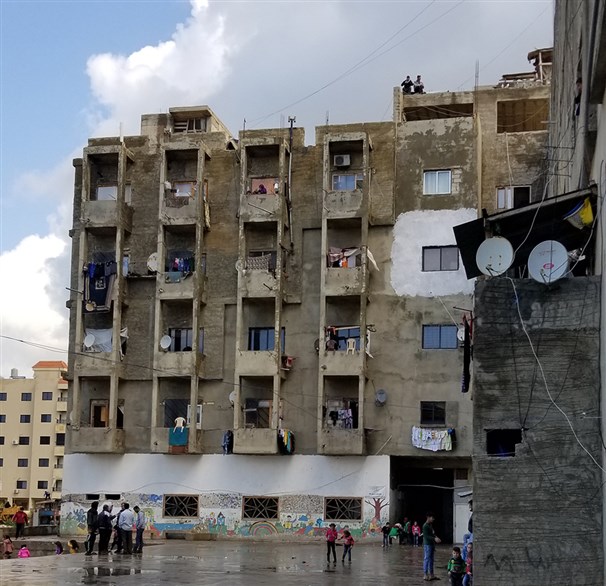
JULY 2021
Journal Article
Hosting Syrian Refugees in Saida Under Protracted Displacement: Unfolding Spatial and Social Exclusion
- Spatial Practices
-

01.07.2021
Book Talk
Book Talk: Negotiating Conflict in Lebanon: Bordering Practices in A Divided Beirut
- Spatial Practices
-
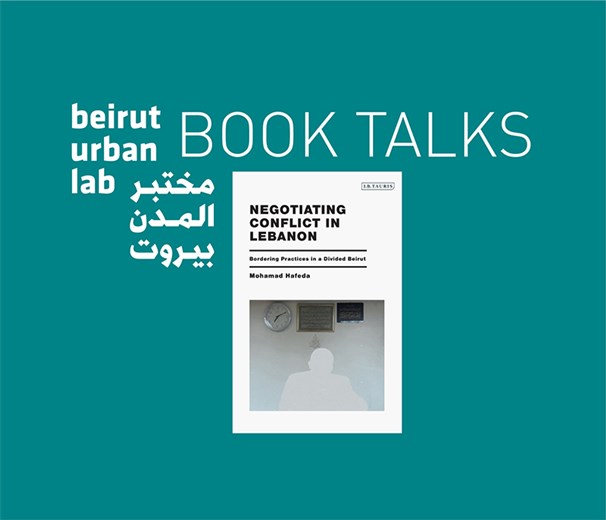
08.06.2021
Book Launch
Negotiating Conflict in Lebanon: Bordering Practices in A Divided Beirut
- Spatial Practices
-

11.05.2021
Documentary
Sects, Parties and Militias Mark their Territories: How Dominant Political Forces Fragmented Beirut
- Urban Citizenship
- Spatial Practices
-
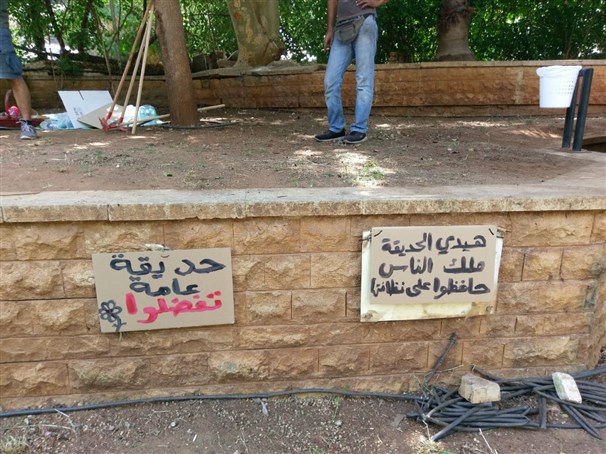
09.12.2020
Article
Urban Vacant Parcels as Opportunities to Reclaim Public Spaces in Times of Crises and Austerity
- Social Value Of Land
- Spatial Practices
- Urban Citizenship
-
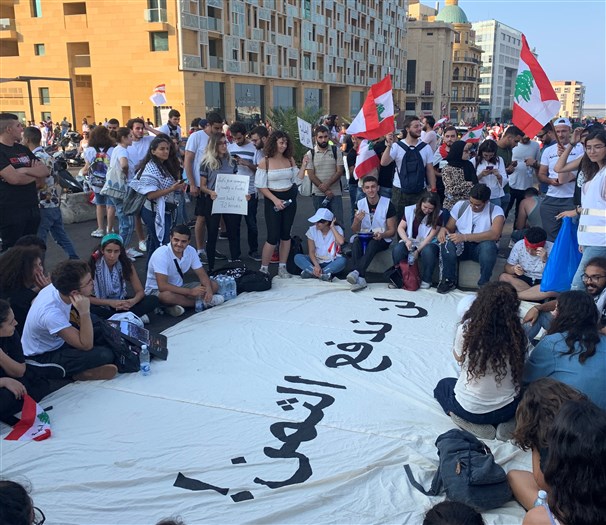
OCTOBER 2020
Journal Article
Urban Revolutions: Lebanon’s October 2019 Uprising
- Urban Citizenship
- Spatial Practices